
Muslims have not been consulted before these rules were drafted as required by the laws and values of Kenyans, religious leaders warned. (Photo: On Islam)
Nairobi, 23 Rabi’ul Akhir 1436/13 February 2015 (MINA) – New security regulations imposed by Kenya government to force Muslim religious leaders to be registered have angered the religious minority, seeing them as restricting their religious freedom and imposing state’s hand on their houses of worship.
“We don’t see the rules to be in good faith. We request that they be withdrawn or we may be compelled to challenge them in court,” Adan Wachu, Secretary General of the Supreme Council of Kenya Muslims, On Islam quoted by Mi’raj Islamic News Agency (MINA) as reporting.
“If these measures are targeting wayward preachers, relevant laws are already there to deal with such persons. Religious leaders should be allowed self-regulation rather than state regulation,” he added.
Under the new regulations, Islamic preachers and mosque imams will have to submit all their personal details to the government, including their photos and identification numbers.
Also Read: Film on Rohingya Tragedy Wins Award at Venice Film Festival
They must also be cleared by police and the anti-corruption body before they are registered to operate in Kenya.
In addition, religious preachers from foreign countries now need work permits and a letter of recommendation from their local embassies before they are allowed to operate in Kenya.
The rules, released by the Office of the Attorney-General and Registrar of Societies, also affect Christian, Hindu or Jewish preachers.
Along with imams, the regulations also require all religious institutions, including mosques, associations and trusts to file their annual returns, included in their audited accounts with the registrar of societies. If any association fails these regulations, it faces de-registration and halt of their activities.
Also Read: WHO Urges Afghanistan to Lift Restrictions on Female Aid Workers
The letter promulgating the rules is dated 18th of December 2014, but has only come to public light a few days ago after being leaked it to the media by some religious leaders. It is expected to come into force in mid-February.
Wachu, from the Muslim’s Supreme Council, rejected the requirements for registering preachers, terming them dangerous and counter-productive.
The head of the umbrella Muslim group added that subjecting religious preachers to such measures might be seen as an attempt to regulate religious practice itself terming it unacceptable.
He expressed fears that the move might be abused to lock out preachers perceived to be critical of the government. Moreover, he explained that Muslims have not been consulted before these rules were drafted as required by the laws and values of Kenyans.
Also Read: Rohingya Muslims Face Starvation Amidst Arakan Army’s Seizure of Land and Fisheries
Intimidating
Imam Osman Yusuf, who preaches regularly in a mosque in a Nairobi surburb, expressed fears that the measures might interfere with the free propagation of Islam among Kenyans.
“We do not want to see obstacles placed in the way of preaching the message of God. Muslim preachers, both local and international should be free to operate in Kenya provided they do not engage in criminal activities,” he told OnIslam.net.
Chairman of the Council of Imams and Preachers of Kenya Abdalla Ateka asserted that the proposed registration of religious leaders could be meant to intimidate preachers, especially Muslim ones.
Also Read: Two Powerful Aftershocks Strike Afghanistan as Death Toll Surpasses 2,200
He said that if the government has issues with individual preachers, it should take up the matter with them rather than dragging the whole group into the net.
Christian religious leaders have also opposed the new rules, saying they have not been subjected to sufficient consultations and public participation.
The rules appear to partly targeting “radical” Muslim preachers perceived to promote hardline positions in support of violent activities.
Government officials have repeatedly accused some Muslim preachers of using their pulpits to “radicalize” youths to join the Al Shabaab militant group which has repeatedly carried out devastating and tragic attacks in Kenya.
Also Read: China Voices Support for Two-State Solution to Palestinian Conflict
However, the rules were drafted shortly a Christian preacher in Nairobi was captured on camera by investigative journalists of a local TV station using paid people to stage fake healing testimonies in order to attract more donations and followers.
The expose provoked public outcry against religious institutions and enhanced calls for regulations of the sector.
In a recent interview with a local TV station, Attorney-General recently Githu Muigai defended the rules saying they are meant to check “excesses” that have crept into religious institutions and personalities.
“The government does not have the desire, the resources or know-how to begin to tell religious institutions how they will carry out their activities. We only want to update existing regulations to be in line with emerging trends,” he said.
Also Read: UNICEF: 350,000 Rohingya Children at Risk of Losing Access to Education by 2026
There is an estimated 100,000 Muslim preachers in Kenya, according to Supkem including imams in mosques across Kenya as well as madrassa and street teachers.
While opposing intrusive measures against Muslim preachers, Amina Abdi, a Nairobi resident, said religious institutions, including Islamic ones, need to improve their management of resources to avoid abuses.
“More accountability and regulation is needed on the finances of religious institutions to ensure they don’t end in private pockets or are misused in other ways,” she said.
“Many Islamic organizations are not above board in the resources they obtain through the names of Muslims.” (T/P011/P3)
Also Read: China Holds Largest Military Parade in Beijing, Welcoming Global Leaders
Mi’raj Islamic News Agency (MINA)







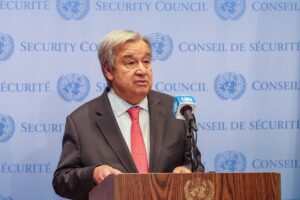
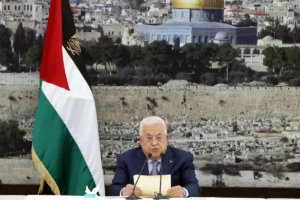
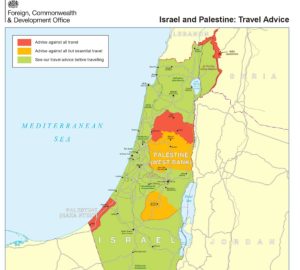
![French President Emmanuel Macron in Berlin, Germany on March 15, 2024 [Halil Sağırkaya – Anadolu Agency]](https://en.minanews.net/wp-content/uploads/2024/10/Screenshot_2024-10-22-20-57-45-59_40deb401b9ffe8e1df2f1cc5ba480b12-300x193.jpg)




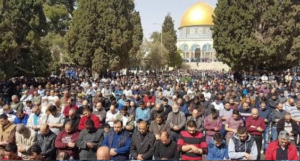
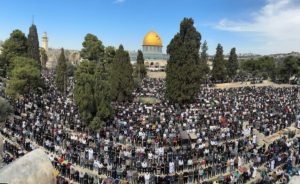
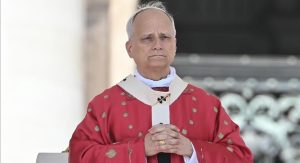
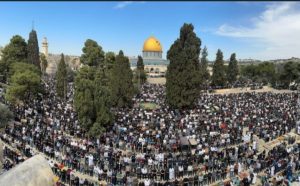







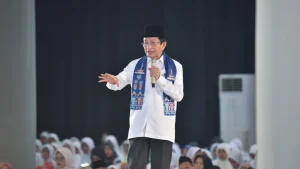
![Israeli tanks and APC’s gather by the Israeli – Lebanese border. Amid Israel’s escalating campaign against Hezbollah in Lebanon on September 30, 2024. [Erik Marmor/Getty Images]](https://en.minanews.net/wp-content/uploads/2024/10/IMG_20241001_203226-300x197.jpg)

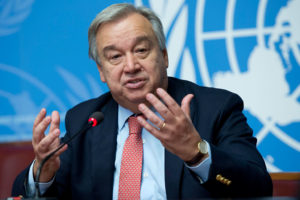
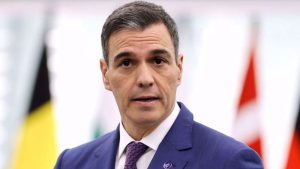




 Mina Indonesia
Mina Indonesia Mina Arabic
Mina Arabic